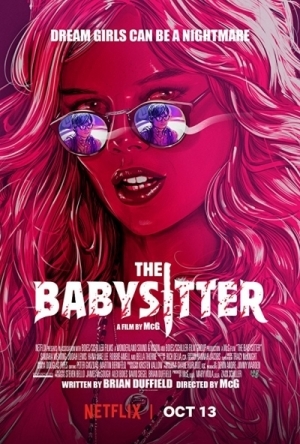Kristy H (1252 KP) rated The Hopefuls in Books
Feb 13, 2018
I was intrigued by the premise of this book--a relationship set to the backdrop of the Obama campaign and administration. Living close to the DC area, I can say that Close's description of many DC citizens is spot on: the Blackberrys, the obsession with security clearance and work standing, the fashion. She's excellent at weaving a story in the details.
The problem, however, is that Beth--the novel's narrator--is just so dull. She's beyond passive, willing to watch life unravel as she watches. It doesn't seem as if Beth is interested in anything, beyond whining. After a while, I just became so frustrated with her, I wanted to scream. It doesn't help that her husband, Matt, is similarly self-absorbed, and Jimmy and Ashleigh aren't any more likable. The book sort of bumps along, with no real movement to swing it along, or a character with any redeeming quality of any sort (good or bad). Even the DC details can't save this often frustrating novel from its own irksome and passive characters. 2.5 stars.
Gareth von Kallenbach (980 KP) rated Planet 51 (2009) in Movies
Aug 8, 2019
The film is written for both children and adults, like a toned down version of “Shrek†with a more relevant moral feel. Putting the characters in the 1950s adds to the film’s charm, allowing kids access to the blatant characterizations of the time period, such as the bumbling science professor and the hippy protestor who maintains from the start that the alien is friendly.
Other characters of note are Lem’s comic book and movie fanatic best friend, Skiff (Seann William Scott) and the military commander General Grawl (Gary Oldman) who is hell-bent on capturing the alien. Children will also enjoy the two pet creatures from a local alien dog that excretes acid to a rock-obsessed robot sent to pick up local specimens for Baker.
“Planet 51†is wholly entertaining. It provides some mature insight by displaying how we would appear to another culture if we ever did encounter aliens. This switch of perspective is sure to make children think and laugh over the simple cross-cultural mishaps that occur while Lem and Baker are attempting to find common ground.
A delightful, animated romp, “Planet 51†will make you hope for a groovy 1960’s sequel.
LeftSideCut (3776 KP) rated The Babysitter (2017) in Movies
Dec 5, 2019 (Updated Jan 22, 2020)
Samara Weaving plays Bee, the titular babysitter, who watches over (a not so convincing)12 year old Cole (Judah Lewis) when his parents head off on vacation.
After Cole has gone to bed, he secretly stays up to see what Bee gets up to after hours, and things take a bloody turn when it become apparent that Bee and her friends are part of a Satan worshipping murder cult.
It's a simple and silly premise, but it works pretty well in this instance.
The opening 20 minutes is all out silly comedy. The chemistry between the two leads is clearly strong and a huge highlight. It's obvious that the two of them were having a blast filming this.
When the Satan worshipping murder cult part comes into play, the gore comes thick and fast (there are some genuinely nasty moments), but it continues to be funny.
The Babysitter made me laugh quite a bit, with some ridiculous dialogue and self awareness, especially from Robbie Amell.
Director McG makes a lot of Scott Pilgrim-esque style choices, but never goes too overboard, making sure they land for the most part.
The rest of the characters are portrayed as cliché annoying millennial types, obviously written as characters that we want to die, but the joke wears thin pretty quickly, especially in the case of Bella Thorne's character.
The movie is also guilty of the often seen try-hard pop culture discussion sequences, which are a little cringey, but these kind of complaints are minimal.
With an 85 minute runtime, The Babysitter is a swift and fun horror comedy romp that has a decent lead. A solid 7/10.
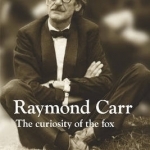
Raymond Carr: The Curiosity of the Fox
Book
Raymond Carr pioneered a new way of looking at modern Spanish history, releasing Spaniards form the...
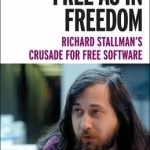
Free as in Freedom: Richard Stallman's Crusade for Free Software
Book
Free as in Freedom interweaves biographical snapshots of GNU project founder Richard Stallman with...

Getting Started in Stock Analysis
Book
Robust analysis shows a more complete picture of market behavior Getting Started in Stock Analysis...
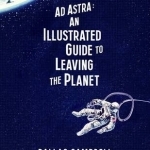
Ad Astra: An Illustrated Guide to Leaving the Planet
Book
A rough-ish guide to space exploration from award-winning BBC journalist and space enthusiast,...

Love & Hip Hop: Miami - Season 1
TV Season Watch
The latest installment of the hit franchise will explore the hip hop, Latin, and reggaeton music...
reality tv music

ClimaVinea
Lifestyle and Food & Drink
App
A comprehensive guide to the great wines of Burgundy, with detailed interactive maps of its renowned...
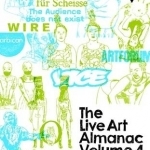
The Live Art Almanac: Volume 4
Lois Keidan, Aaron Wright and Harriet Curtis
Book
Live Art is now recognized as one of the most vital and influential of creative spaces in the UK....


